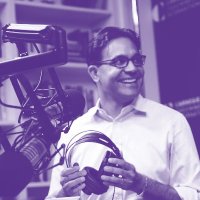
Tanvi Madan
@tanvi_madan
Sr Fellow, @BrookingsInst. Author, "Fateful Triangle: How China Shaped US-India Rels During the Cold War." Host, Global India podcast brookings.edu/globalindia
ID: 741520723
http://www.brookings.edu/experts/madant 06-08-2012 21:52:28
48,48K Tweet
91,91K Followers
4,4K Following

















1/ Out now: the third and final installment in our Carnegie Endowment series drawing from the 2024 Indian American Attitudes Survey. This study looks at "How Indian Americans Live"--covering questions of identity, civic & political engagement, and connections with their Indian roots.





